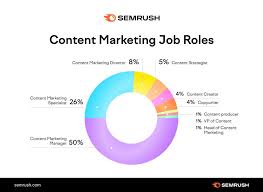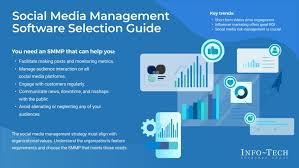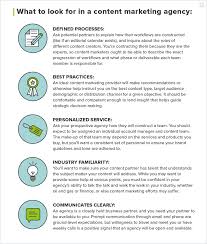Empowering Your Brand: The Impact of Content Creation Agencies in Today’s Digital Landscape
The Role of Content Creation Agencies in Today’s Digital Landscape
In the fast-paced and competitive world of digital marketing, content creation agencies play a crucial role in helping businesses stand out and connect with their target audience. These agencies are dedicated to producing high-quality, engaging content that resonates with consumers and drives meaningful interactions.
Content creation agencies offer a range of services, including:
- Content Strategy: Developing a comprehensive plan to create content that aligns with the client’s goals and objectives.
- Content Production: Creating various types of content such as articles, blog posts, videos, infographics, and more.
- Content Distribution: Ensuring that the content reaches the right audience through various channels like social media, email marketing, and SEO.
- Content Analysis: Measuring the performance of the content to optimize future strategies and improve results.
What sets content creation agencies apart is their ability to tailor content to suit different platforms and audiences. They understand the importance of storytelling, visuals, and messaging in capturing the attention of consumers in today’s cluttered digital space.
By partnering with a content creation agency, businesses can benefit from:
- Expertise: Access to a team of skilled writers, designers, videographers, and strategists who are experts in creating compelling content.
- Creativity: Fresh ideas and innovative approaches that help brands differentiate themselves and stay ahead of the competition.
- Efficiency: Saving time and resources by outsourcing content creation tasks to professionals who can deliver quality results quickly.
- Effectiveness: Driving engagement, building brand awareness, and ultimately increasing conversions through well-crafted content campaigns.
In conclusion, content creation agencies play a vital role in helping businesses navigate the complex world of digital marketing. By leveraging their expertise and creativity, businesses can create impactful content that resonates with their audience and drives success in today’s competitive landscape.
Top 5 Benefits of Partnering with Content Creation Agencies for Your Business
- Access to a team of skilled professionals with expertise in content creation.
- Fresh and innovative ideas to help businesses differentiate themselves in the market.
- Efficient outsourcing of content tasks, saving time and resources for the business.
- Effective content strategies that drive engagement, brand awareness, and conversions.
- Tailored content solutions that resonate with target audiences across various platforms.
Challenges of Content Creation Agencies: High Costs, Limited Brand Control, and Communication Hurdles
Access to a team of skilled professionals with expertise in content creation.
One key advantage of partnering with content creation agencies is the access to a team of skilled professionals who excel in the art of content creation. These experts bring a wealth of experience and knowledge to the table, allowing businesses to benefit from their expertise in crafting compelling and engaging content that resonates with the target audience. By leveraging the diverse skill sets and creative talents of these professionals, businesses can elevate their content strategy and effectively communicate their brand message to achieve their marketing objectives.
Fresh and innovative ideas to help businesses differentiate themselves in the market.
Content creation agencies offer businesses a valuable advantage by providing fresh and innovative ideas that help them differentiate themselves in the market. By tapping into the creative expertise of these agencies, businesses can break through the noise and capture the attention of their target audience with unique and compelling content strategies. This pro allows businesses to stay ahead of the competition, establish a distinct brand identity, and connect with consumers in meaningful ways that set them apart in a crowded marketplace.
Efficient outsourcing of content tasks, saving time and resources for the business.
One significant advantage of utilising content creation agencies is the efficient outsourcing of content tasks, which ultimately saves valuable time and resources for businesses. By entrusting content creation responsibilities to professionals who specialise in producing high-quality and engaging content, businesses can focus on core operations and strategic initiatives without the burden of managing content creation in-house. This streamlined approach not only enhances productivity but also ensures that businesses receive top-notch content efficiently, allowing them to allocate resources more effectively towards achieving their overall business objectives.
Effective content strategies that drive engagement, brand awareness, and conversions.
Content creation agencies excel in developing effective content strategies that drive engagement, enhance brand awareness, and boost conversions for businesses. By crafting compelling and tailored content across various platforms, these agencies can capture the attention of target audiences, create meaningful interactions, and ultimately influence consumer behaviour. Through strategic planning, creative storytelling, and data-driven analysis, content creation agencies help brands establish a strong online presence, build credibility, and drive tangible results that contribute to their overall success in the digital landscape.
Tailored content solutions that resonate with target audiences across various platforms.
Content creation agencies offer a valuable pro by providing tailored content solutions that resonate with target audiences across various platforms. By understanding the unique preferences, behaviours, and interests of different audience segments, these agencies can create content that speaks directly to the intended recipients. Whether it’s crafting engaging social media posts, informative blog articles, visually appealing infographics, or captivating videos, content creation agencies excel in delivering messages that connect with consumers on the platforms they frequent. This tailored approach ensures that brands can effectively engage with their target audience and drive meaningful interactions that lead to increased brand awareness and loyalty.
Costly services
Content creation agencies can pose a significant challenge for small businesses with constrained financial resources due to their costly services. The expense of engaging a content creation agency can often be prohibitive, making it difficult for smaller enterprises to access the expertise and resources required to develop high-quality content. This financial barrier can limit the ability of small businesses to effectively compete in the digital landscape and hinder their efforts to establish a strong online presence.
Lack of brand control
Businesses may encounter a significant drawback when working with content creation agencies, which is the lack of brand control. Entrusting the task of content creation to an external agency can lead to concerns about maintaining consistency in brand voice and messaging. Businesses may fear that their unique identity and values could be diluted or misrepresented, impacting their overall brand perception among their target audience. This loss of control over how their brand is portrayed in the content produced by the agency can be a valid concern for businesses seeking to maintain a cohesive and authentic brand image.
Communication challenges
Communication challenges pose a significant con for content creation agencies. Misunderstandings or delays in communication between the business and the agency can result in inefficiencies and subpar content quality. When there is a lack of clear communication channels or misalignment in expectations, it can hinder the smooth flow of the content creation process. This can lead to misunderstandings about the brand’s messaging, tone, or target audience, ultimately impacting the effectiveness and relevance of the content produced. Addressing communication challenges is essential to ensure that both parties are on the same page and working towards achieving the desired outcomes efficiently and effectively.








